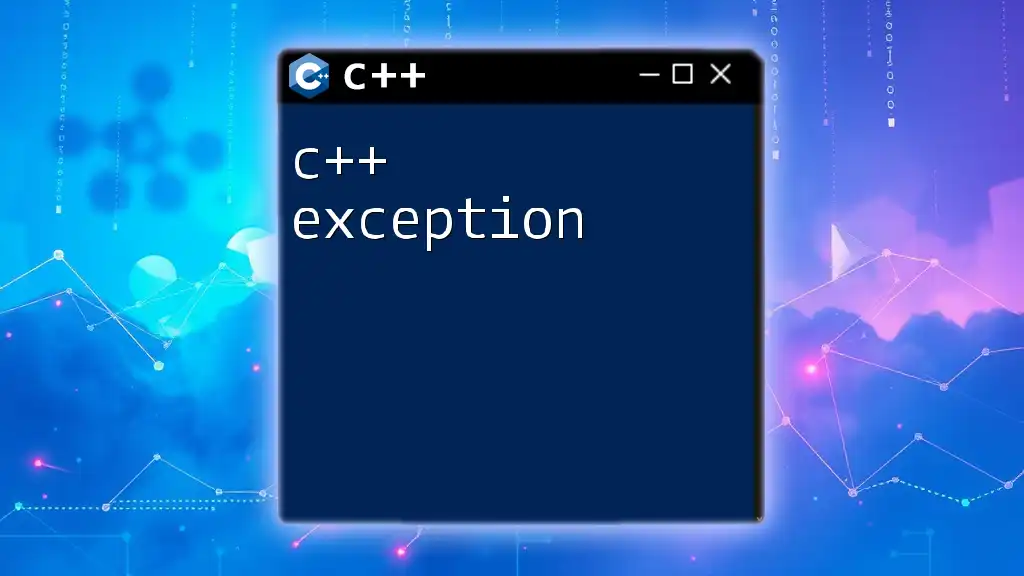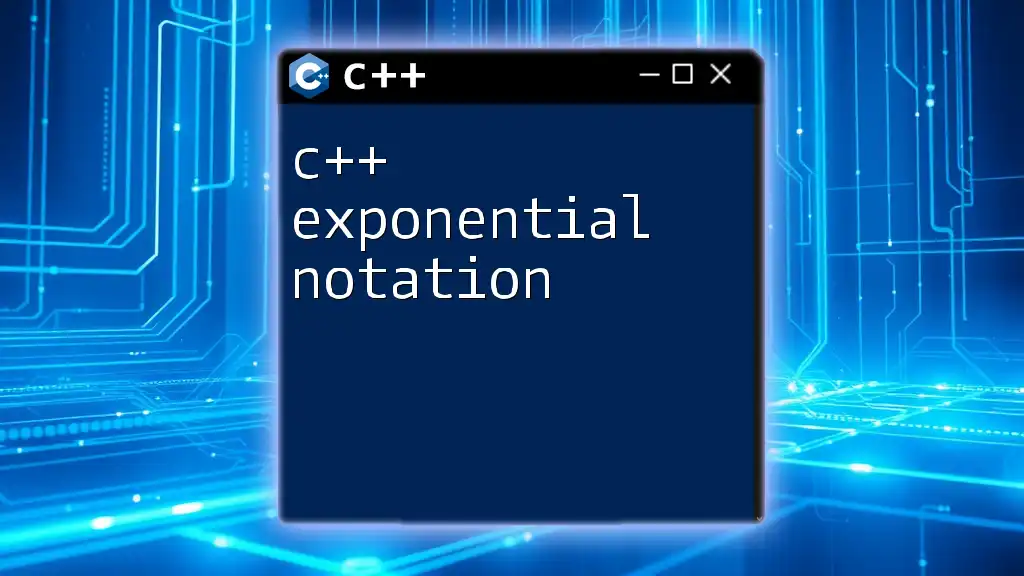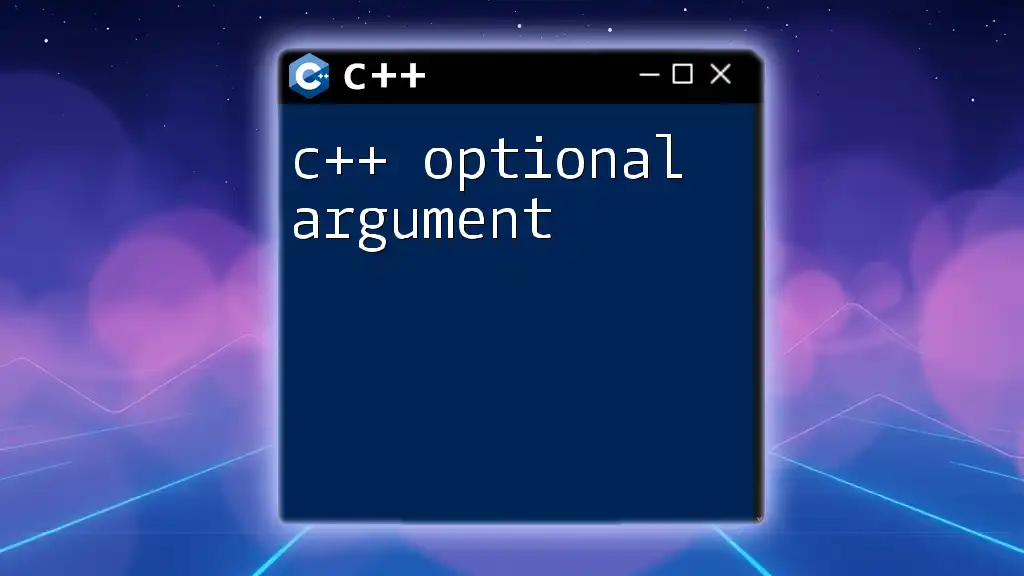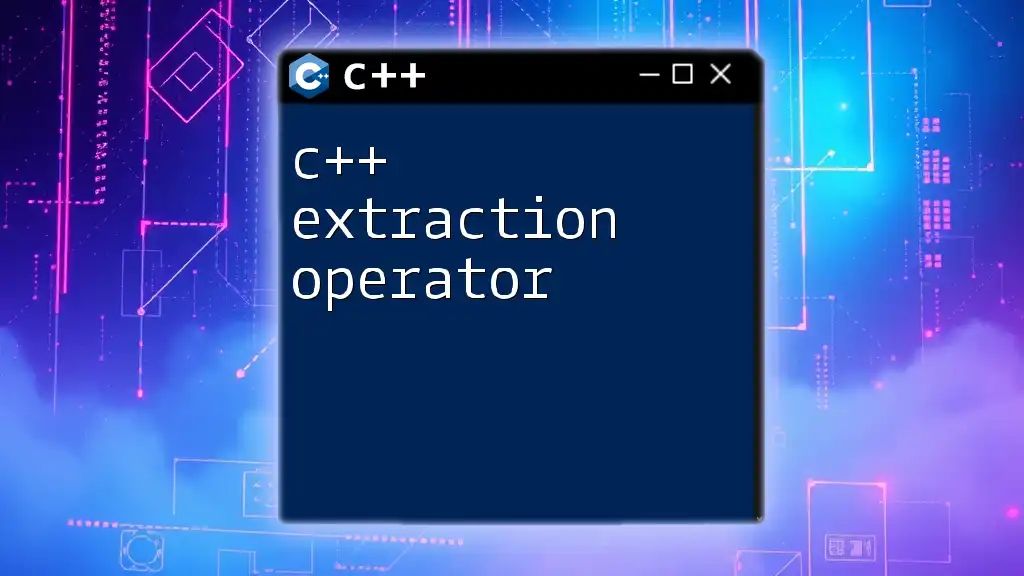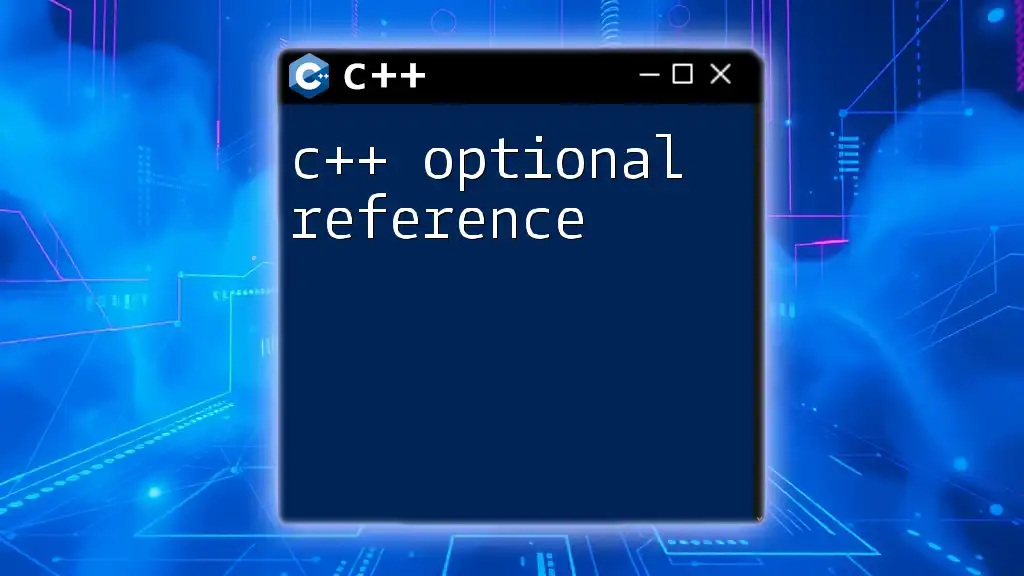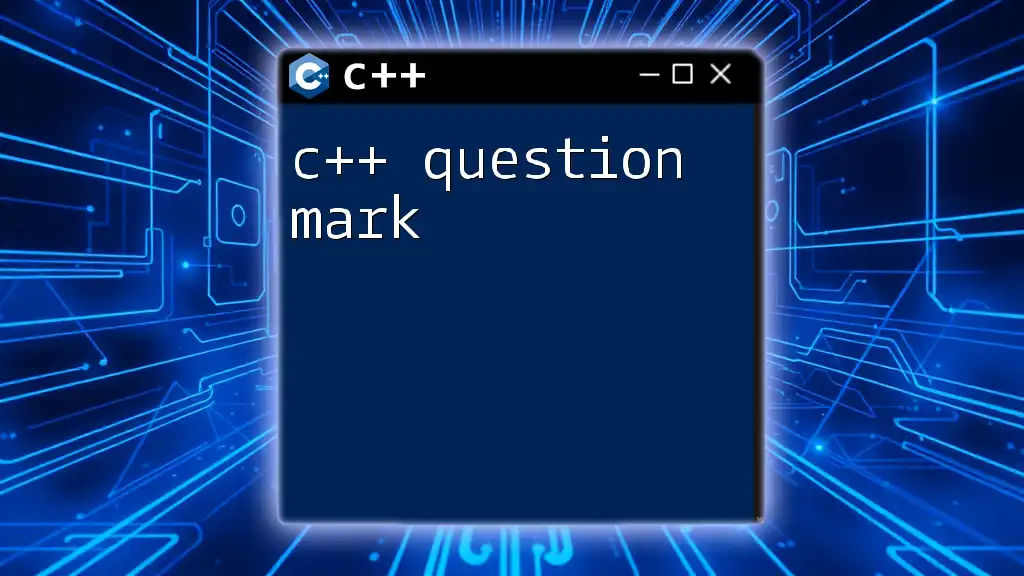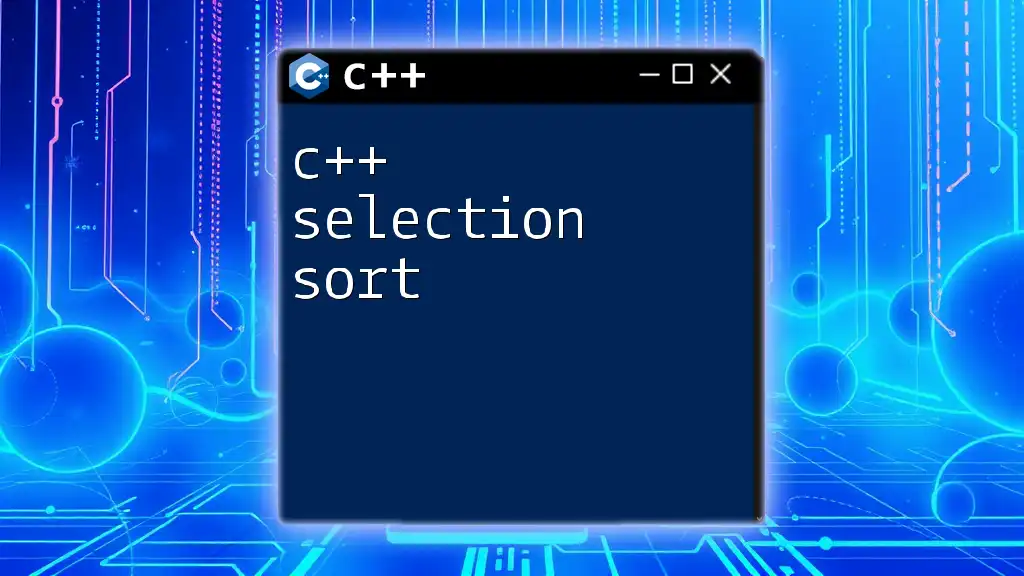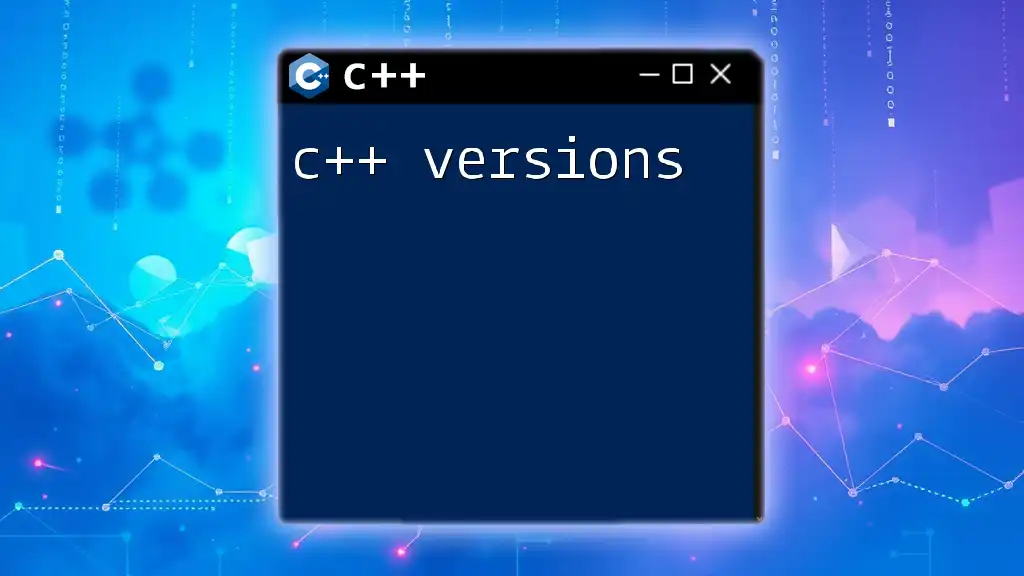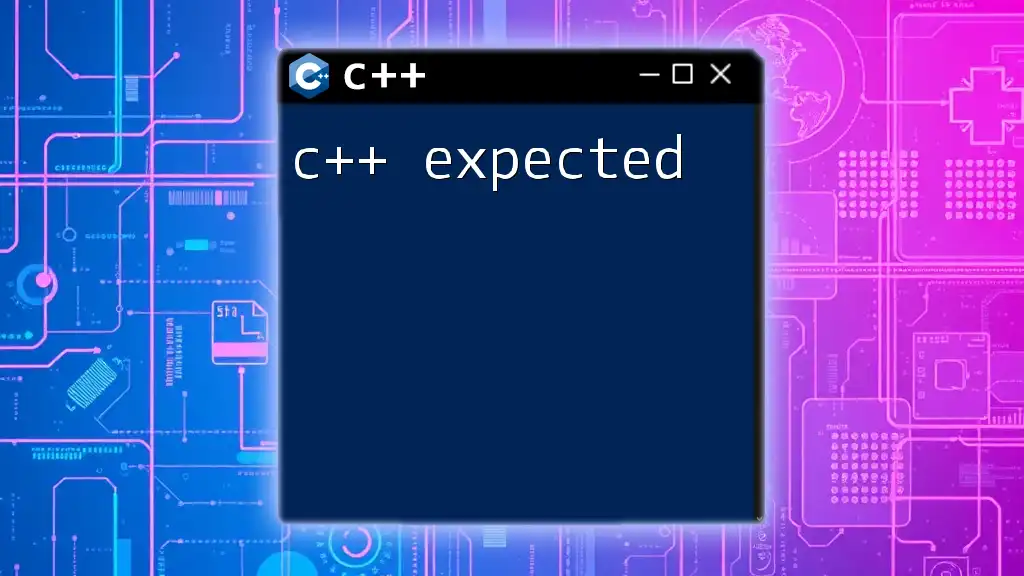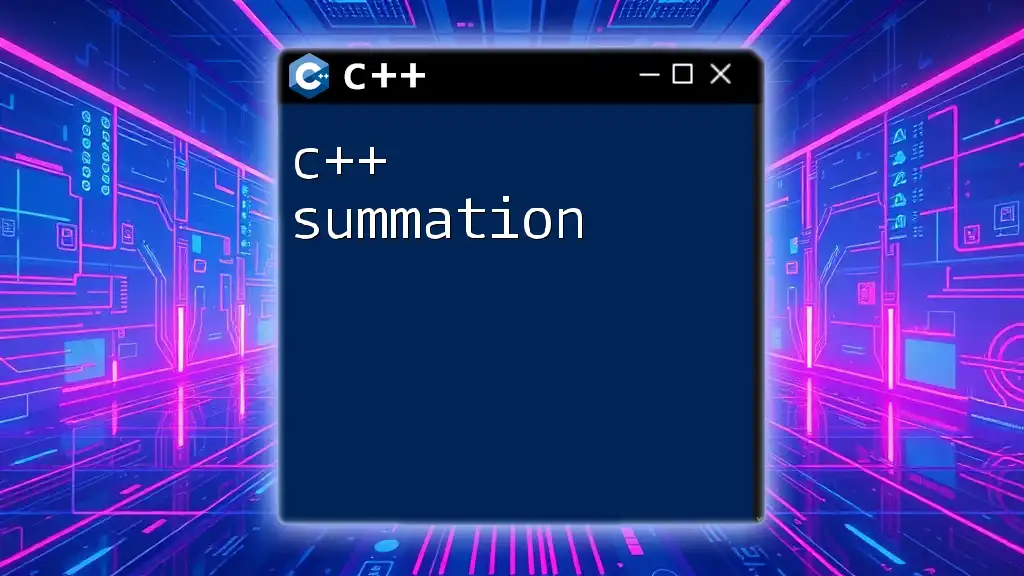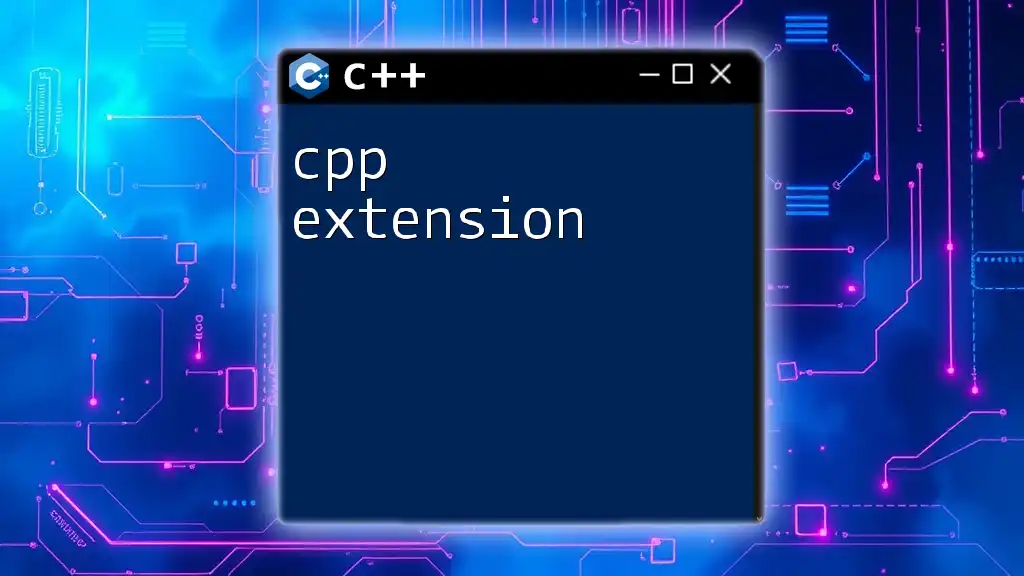C++ exceptions are a mechanism for handling runtime errors using `try`, `catch`, and `throw` blocks to ensure robust error handling in programs.
#include <iostream>
#include <stdexcept>
int main() {
try {
throw std::runtime_error("An error occurred");
} catch (const std::runtime_error& e) {
std::cout << "Caught exception: " << e.what() << std::endl;
}
return 0;
}
What are Exceptions in C++?
In C++, an exception is a special condition that alters the normal flow of the program's execution. It allows developers to handle error situations gracefully. Unlike traditional error handling, which often relies on return codes, exceptions provide a way to separate error-handling code from regular code, making the programs cleaner and easier to read.
It's crucial to understand that exceptions are distinct from errors. While errors typically indicate serious issues that a reasonable application should not try to catch (like memory corruption), exceptions are conditions that a program can catch and handle. Common scenarios that lead to exceptions include accessing invalid memory, division by zero, or failing to open a file.
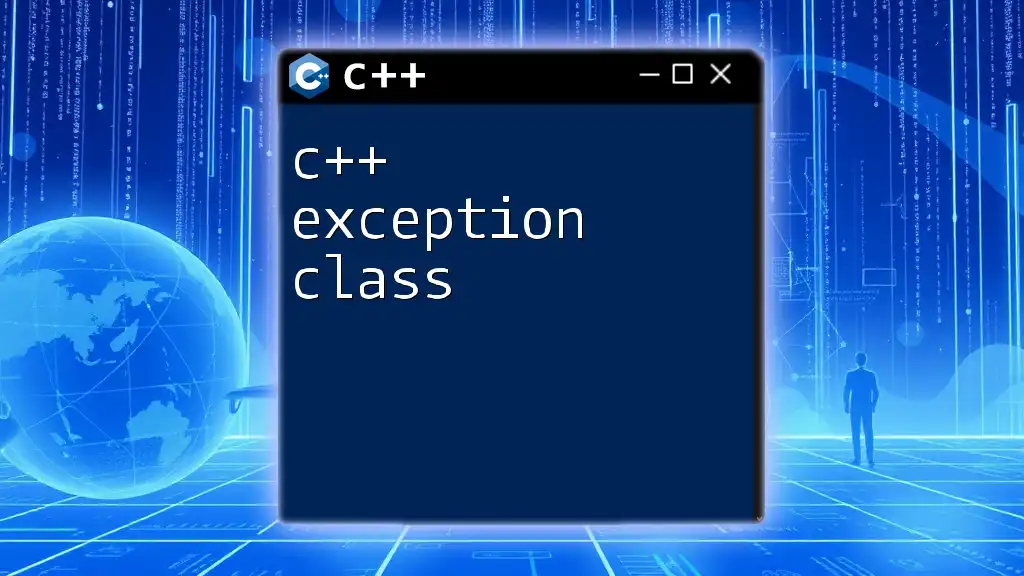
The Need for Exception Handling in C++
Exception handling is vital in developing robust applications. When exceptions are not managed, they can lead to undesirable program behavior, including program termination. Unhandled exceptions can propagate up the call stack, potentially leaving resources in an inconsistent state or causing data loss.
By implementing proper exception handling strategies, developers can:
- Catch errors at runtime and prevent abrupt crashes.
- Maintain program flow while addressing unexpected situations.
- Improve the maintainability and readability of the codebase.
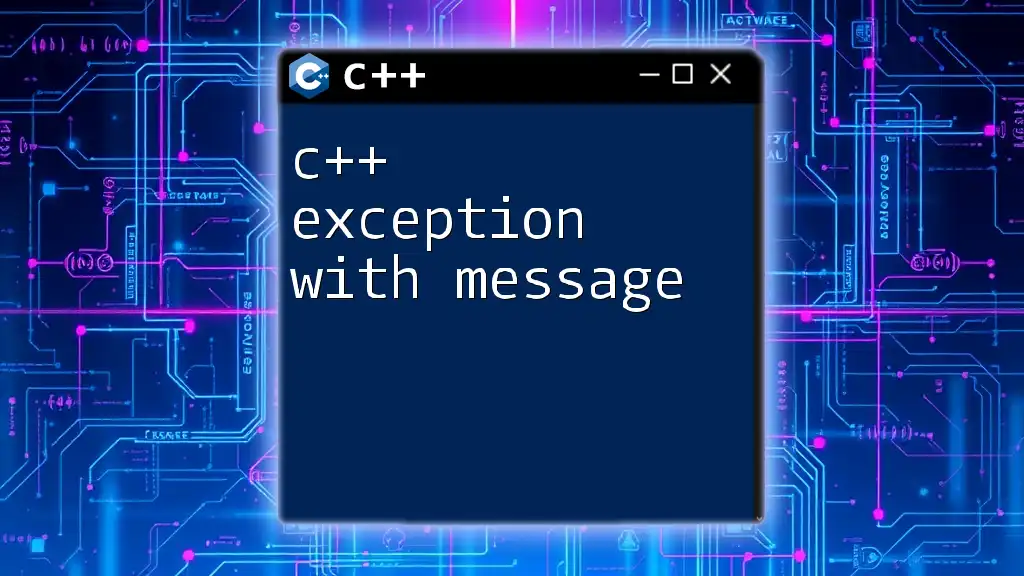
Key Concepts of C++ Exception Handling
Exception Types in C++
C++ provides a hierarchy of standard exception classes in its Standard Library. Understanding these is essential for effective error management. Here are the key exception types:
- `std::exception`: The base class for all standard exceptions. It provides a virtual function `what()` that can return an explanatory string.
- `std::runtime_error`: This class represents errors that occur during program execution.
- `std::logic_error`: This class is intended for logical errors in the program, like violating a contract.
Custom exceptions can also be created for application-specific error handling.
Exception Handling Mechanism
C++ utilizes three keywords for exception handling: `try`, `throw`, and `catch`.
- `try`: The block of code that may throw an exception.
- `throw`: Used to signal the occurrence of an exception.
- `catch`: Handles the exception thrown by the associated `try` block.
The flow of control in a C++ program changes when an exception is thrown. For example:
try {
// Code that may throw an exception
int x = 0;
int y = 10 / x; // This will throw a divide by zero exception
}
catch (const std::exception &e) {
// Code to handle the exception
std::cerr << "Error occurred: " << e.what() << std::endl;
}
In this code, dividing by zero will throw an exception that is caught by the catch block, preventing the program from crashing and providing meaningful feedback.
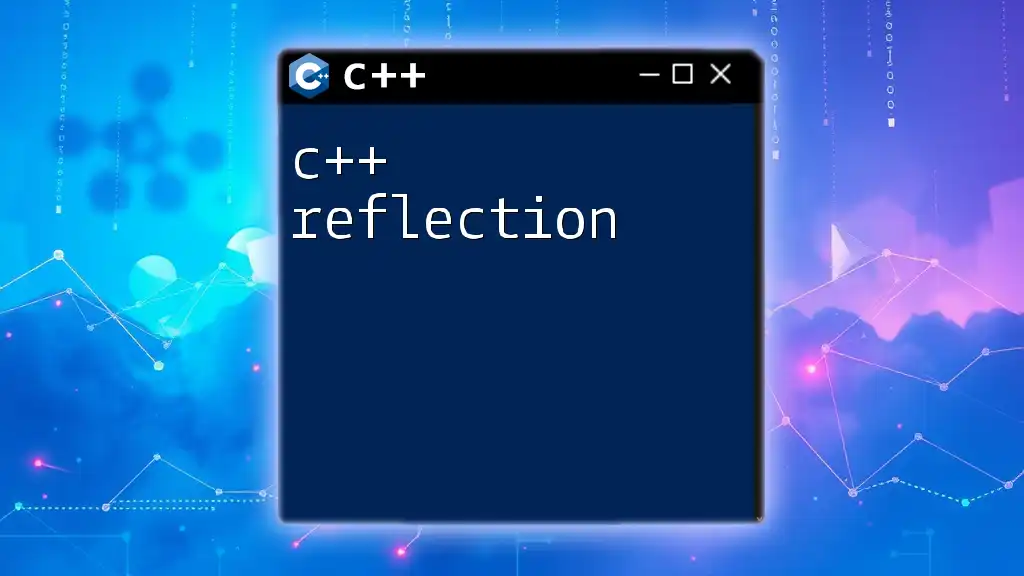
Implementing Exception Handling in C++
Basic Syntax of Exception Handling
The basic structure of handling an exception in C++ is straightforward. Here is a simple example:
try {
// Risky code that may throw an exception
int *ptr = nullptr;
*ptr = 10; // Dereferencing a null pointer will throw an exception
}
catch (const std::exception &e) {
// Handling the exception
std::cerr << "Exception caught: " << e.what() << std::endl;
}
In this snippet, dereferencing a null pointer will throw a runtime exception that can be captured and reported without crashing the program.
Creating Custom Exception Classes
In C++, you can also create custom exceptions by inheriting from the `std::exception` class. This provides a way to define specific error conditions relevant to your application:
class MyException : public std::exception {
public:
const char* what() const noexcept override {
return "My custom exception occurred!";
}
};
Using a custom exception allows you to convey specific error information. You can throw this exception like so:
throw MyException();
This approach enhances the clarity of your error handling, enabling developers to catch specific exceptions with appropriate logic.
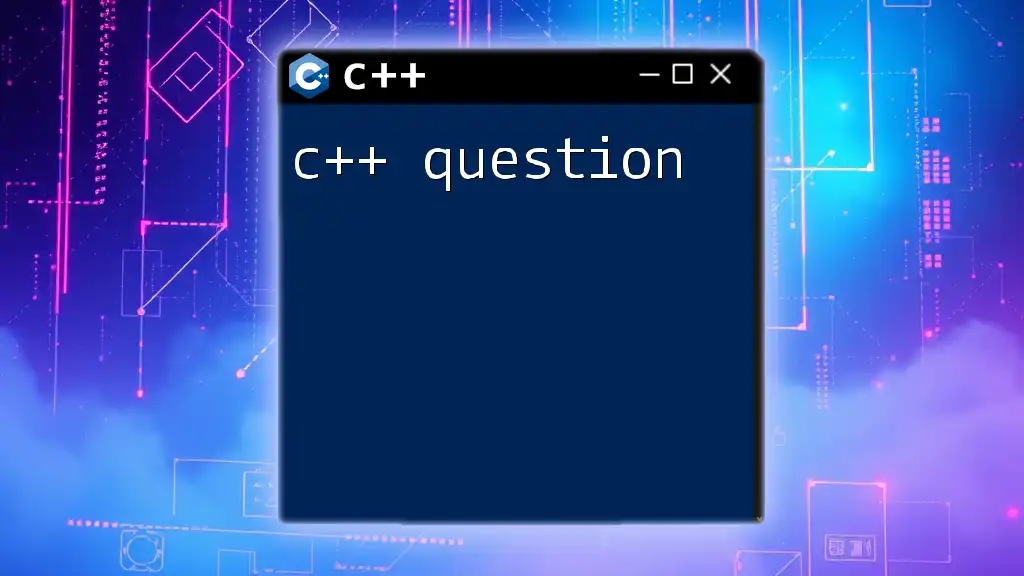
Best Practices for Exception Handling in C++
Using Exceptions Judiciously
While exceptions are powerful, they should not be used improperly. Avoid relying on exceptions for regular control flow, such as using conditions that are inherently predictable. Instead, use exceptions to capture unexpected conditions where a standard return value would not suffice.
Cleaning Up Resources
It's essential to manage resources carefully when exceptions occur. The RAII (Resource Acquisition Is Initialization) principle comes in handy here. Resources should be acquired in a way that ensures they are automatically released when the object goes out of scope.
For example:
class Resource {
public:
Resource() {
// Allocate resources
}
~Resource() {
// Free resources
}
};
Using such a class ensures that resources are correctly managed, reducing the risk of leaks and corruption even when exceptions occur.
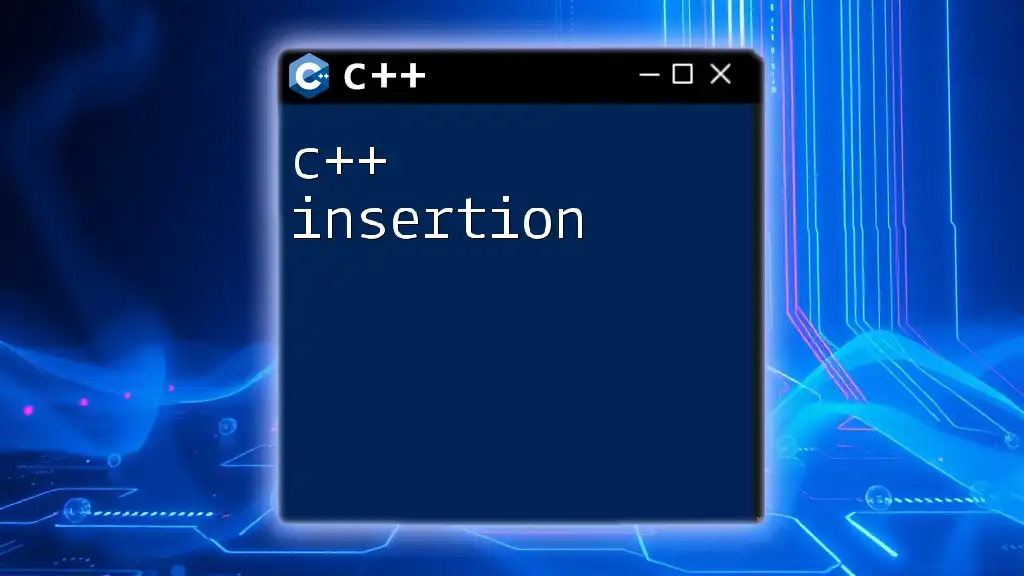
Exception Handling in C++ Standard Library
Overview of Standard Exception Classes
The C++ Standard Library includes several predefined exception classes that are useful when handling errors. It's important to familiarize yourself with these classes so you can leverage them effectively in your applications.
Exception Safety Levels
C++ organizes exceptions into different safety levels, which describe how functions handle exceptions:
- No-throw guarantee: The function does not throw exceptions.
- Strong guarantee: If an exception is thrown, the program state is unchanged.
- Basic guarantee: If an exception is thrown, the destructors of successfully constructed objects will run, but program state may not be preserved.
Understanding these levels helps in designing resilient applications that can recover gracefully from errors.
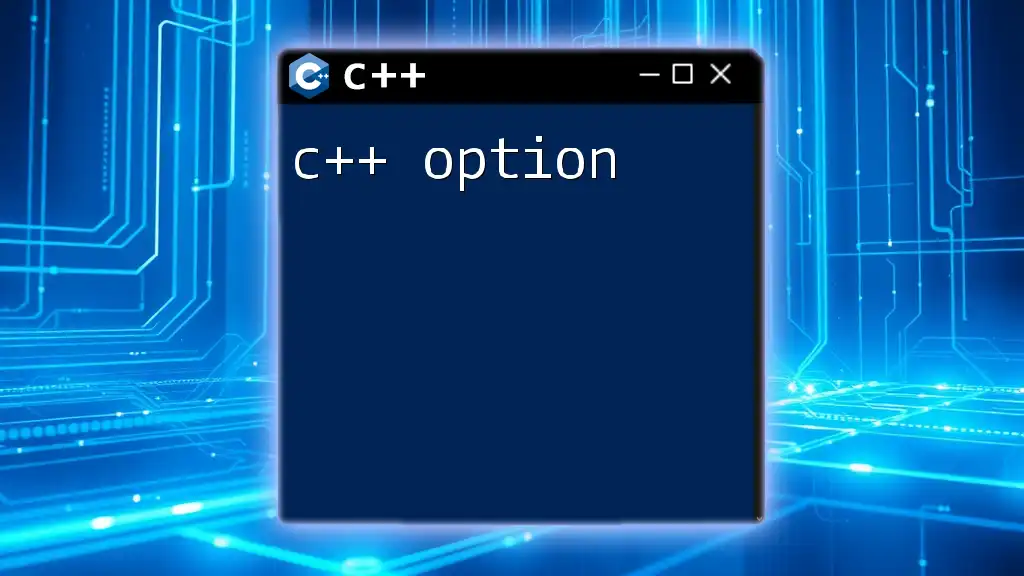
Debugging and Logging Exceptions
Debugging exceptions can be challenging. Important techniques for debugging include using logs to capture exception information. Logging exception details can help identify issues and understand program behavior.
For example:
catch (const std::exception &e) {
std::cerr << "Exception caught: " << e.what() << std::endl;
// Additional logging can go here
}
Using logs effectively allows developers to track down errors without interrupting the program's execution environment unnecessarily.
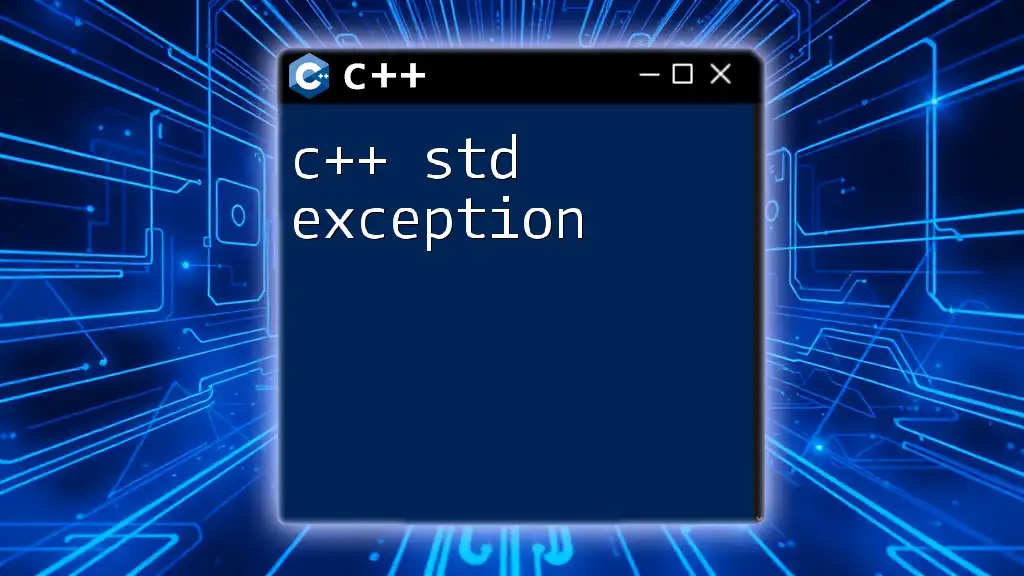
Common Pitfalls in Exception Handling
Developers often make common mistakes related to exception handling. One frequent pitfall is failing to catch specific exceptions, leading to loss of critical information when debugging. Another mistake is neglecting to clean up allocated resources, which can lead to memory leaks.
To avoid these pitfalls, ensure that you catch exceptions at the appropriate level and develop a robust resource management strategy.
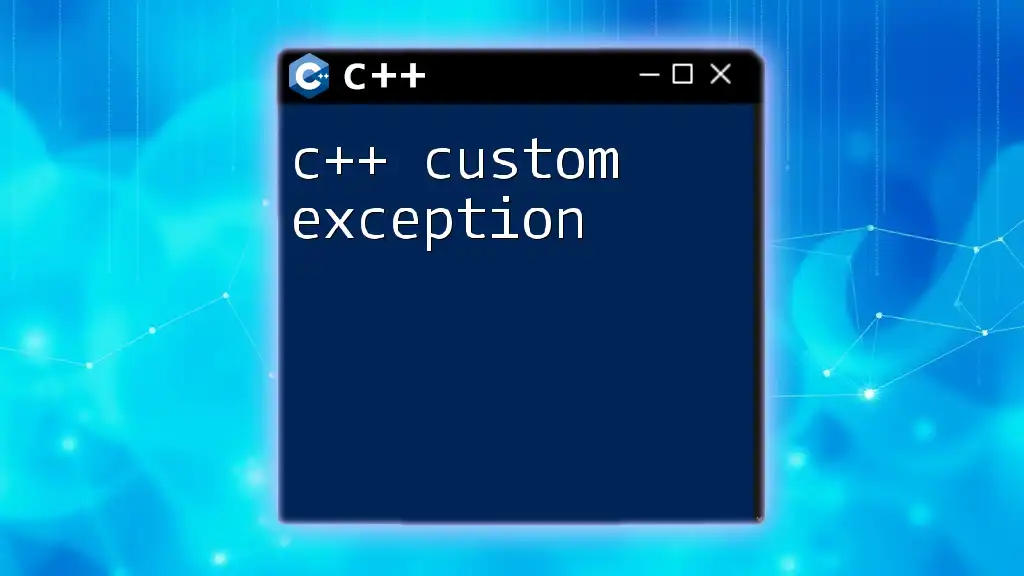
Conclusion
Effective exception handling is a cornerstone of robust C++ programming. By understanding the mechanisms and practices related to C++ exceptions, developers can create applications that not only function under normal conditions but are also resilient to unexpected errors. Proper use of exception handling strategies fosters maintainable code and improves the application's reliability. It's essential to practice and implement these concepts in real projects to become proficient in managing exceptions in C++.
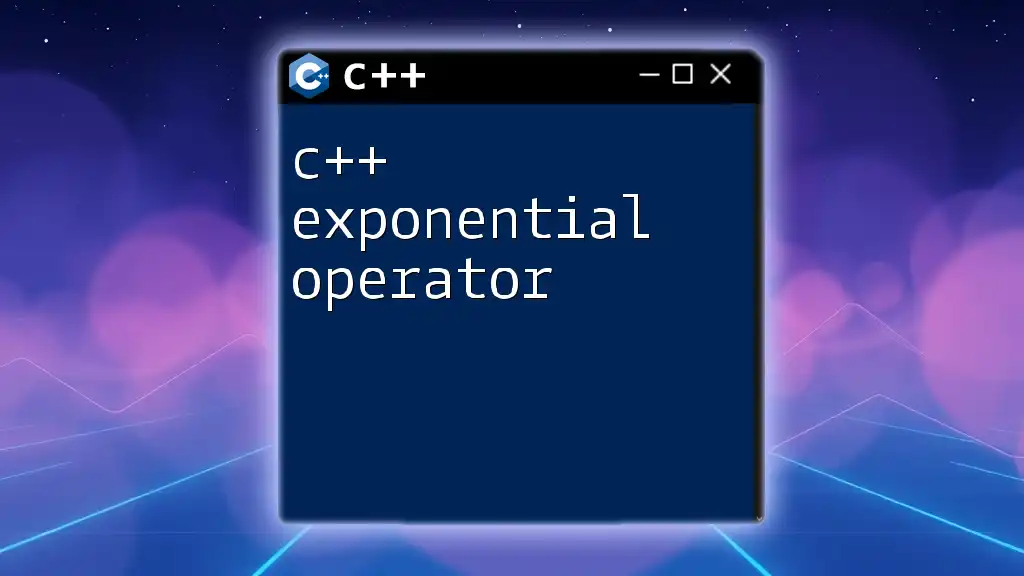
Additional Resources
For further exploration of exception handling in C++, consider the following resources:
- Books: "C++ Primer" by Stanley B. Lippman and "Effective C++" by Scott Meyers
- Online tutorials: Various courses are available on platforms like Coursera and Udemy
- Code repositories: Explore GitHub for open-source projects implementing robust exception handling strategies

